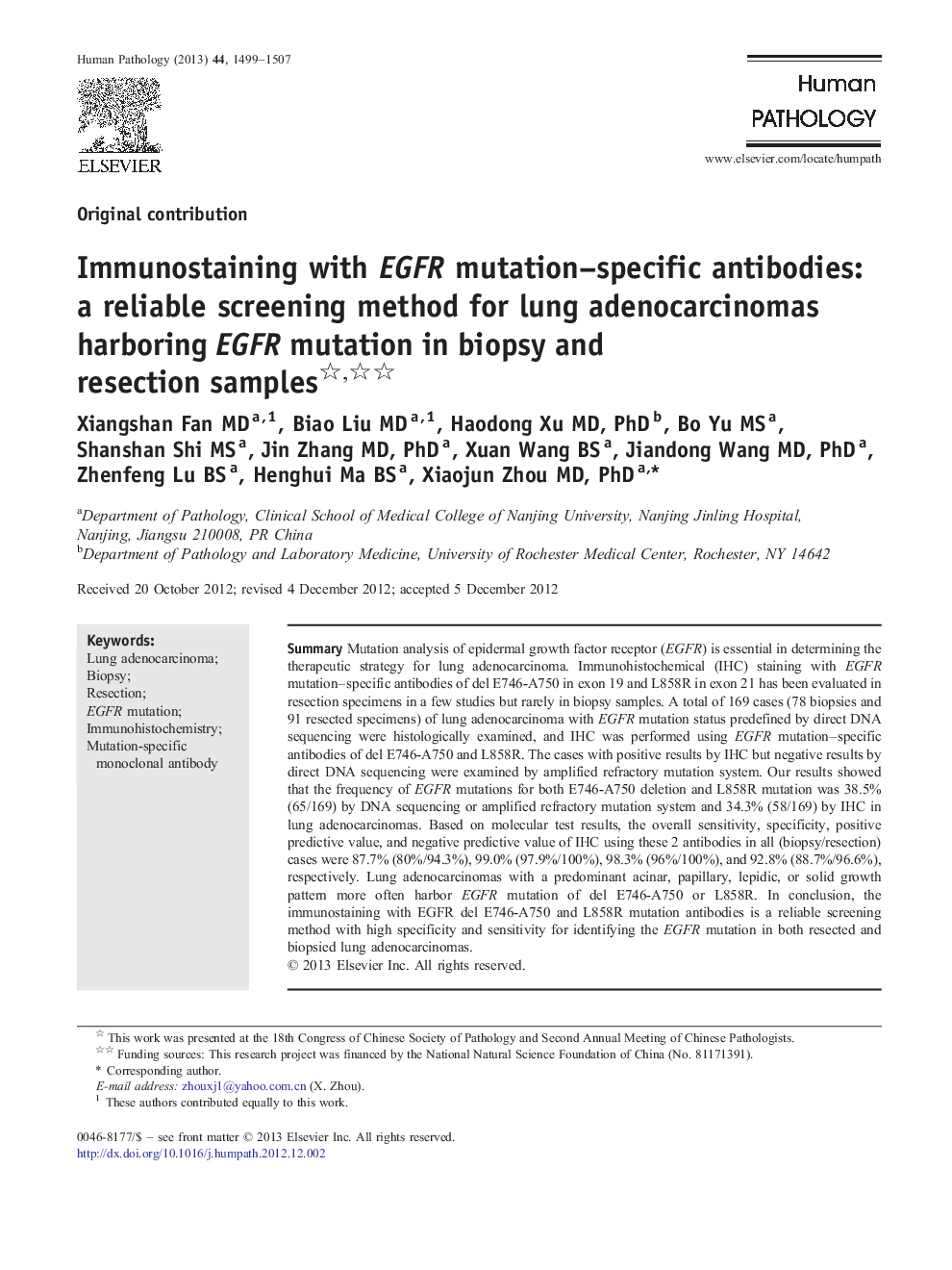| Article ID | Journal | Published Year | Pages | File Type |
|---|---|---|---|---|
| 4133289 | Human Pathology | 2013 | 9 Pages |
SummaryMutation analysis of epidermal growth factor receptor (EGFR) is essential in determining the therapeutic strategy for lung adenocarcinoma. Immunohistochemical (IHC) staining with EGFR mutation–specific antibodies of del E746-A750 in exon 19 and L858R in exon 21 has been evaluated in resection specimens in a few studies but rarely in biopsy samples. A total of 169 cases (78 biopsies and 91 resected specimens) of lung adenocarcinoma with EGFR mutation status predefined by direct DNA sequencing were histologically examined, and IHC was performed using EGFR mutation–specific antibodies of del E746-A750 and L858R. The cases with positive results by IHC but negative results by direct DNA sequencing were examined by amplified refractory mutation system. Our results showed that the frequency of EGFR mutations for both E746-A750 deletion and L858R mutation was 38.5% (65/169) by DNA sequencing or amplified refractory mutation system and 34.3% (58/169) by IHC in lung adenocarcinomas. Based on molecular test results, the overall sensitivity, specificity, positive predictive value, and negative predictive value of IHC using these 2 antibodies in all (biopsy/resection) cases were 87.7% (80%/94.3%), 99.0% (97.9%/100%), 98.3% (96%/100%), and 92.8% (88.7%/96.6%), respectively. Lung adenocarcinomas with a predominant acinar, papillary, lepidic, or solid growth pattern more often harbor EGFR mutation of del E746-A750 or L858R. In conclusion, the immunostaining with EGFR del E746-A750 and L858R mutation antibodies is a reliable screening method with high specificity and sensitivity for identifying the EGFR mutation in both resected and biopsied lung adenocarcinomas.
